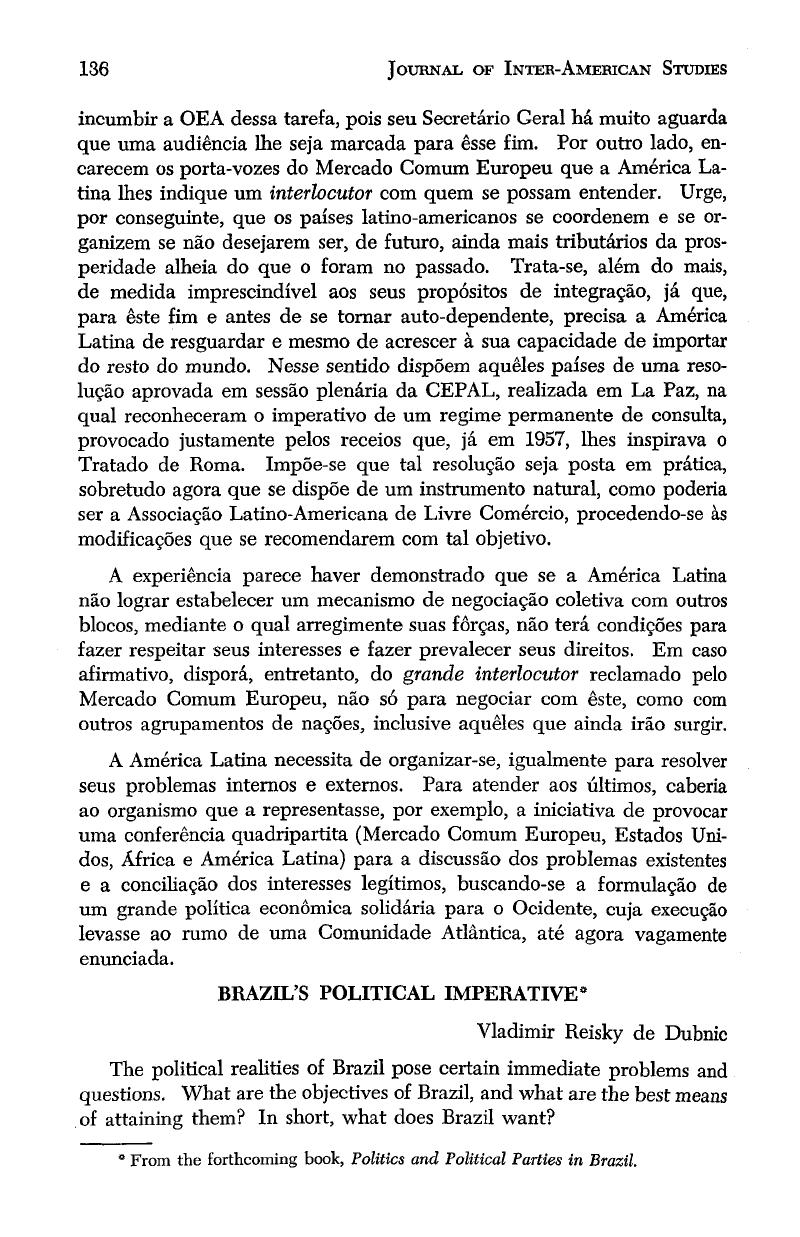No CrossRef data available.
Article contents
Brazil's Political Imperative
Published online by Cambridge University Press: 03 January 2018
Abstract

- Type
- Nuevas Corrientes
- Information
- Copyright
- Copyright © University of Miami 1963
References
1 Correio da Manha, March 31, 1962.
2 Roberto Campos, “Uma Reformulacao das Leis do Kafka”, Senhor March, 1961, page 61.
3 Governor Carlos Lacerda and others single out education as the foremost bottleneck of Brazilian development.
4 In 1962, there were seventy thousand young people ready to enter university education, but only twenty-five thousand could be admitted. The rest were destined to give up their ambitions for higher education, and this all because of the catastrophic lack of resources to expand university facilities to the level of current needs.
5 The SUDENE organization on the Brazilian side, and the Point IV Program (AID) on the U. S. side are cases in point.
6 While the U. S. information service effort has improved lately, it is still quantitatively very much inferior to Soviet propaganda activities in Brazil.
7 According to Prime Minister Tancredo Neves those who criticize the Parliamentary regime on the basis of its lack of decision-making capacity are only fortifying the position of those who doubt that rapid economic development can be achieved by democratic means.


